Easy Reading Non-Fiction Worksheets for Ages 3-6
11 filtered results
-
From - To
Welcome to our collection of Easy Reading Non-Fiction Worksheets, specially designed for children ages 3-6! These engaging and age-appropriate worksheets encourage young learners to explore the wonders of the real world through captivating illustrations and simple text. Perfect for enhancing reading skills and fostering a love for learning, these worksheets cover various topics, from animals to nature, making learning fun and interactive. Each activity aims to promote literacy development while expanding knowledge and curiosity. Download and print these worksheets today to provide your little ones with a fantastic start in reading comprehension and a deeper understanding of their surroundings!
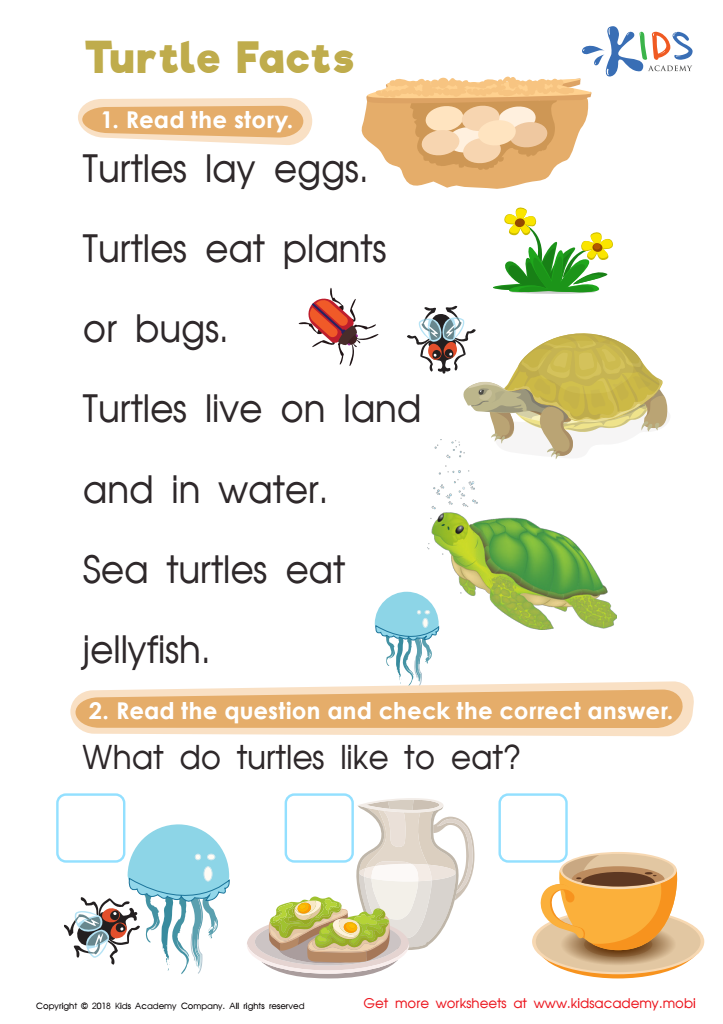

Turtle Facts Worksheet
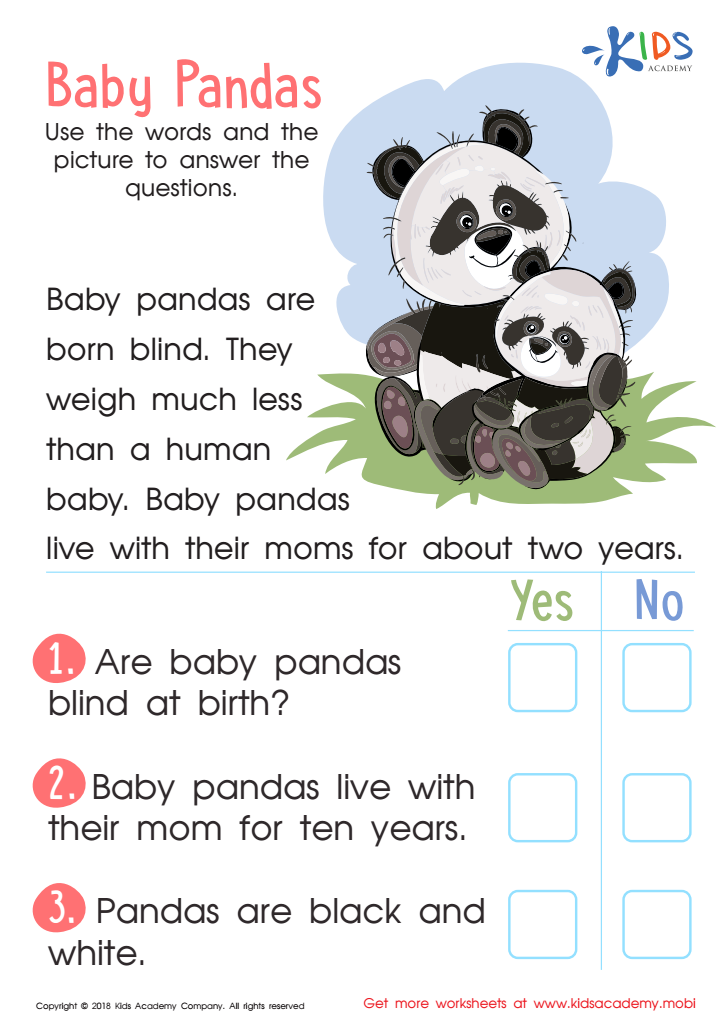

Baby Pandas Worksheet
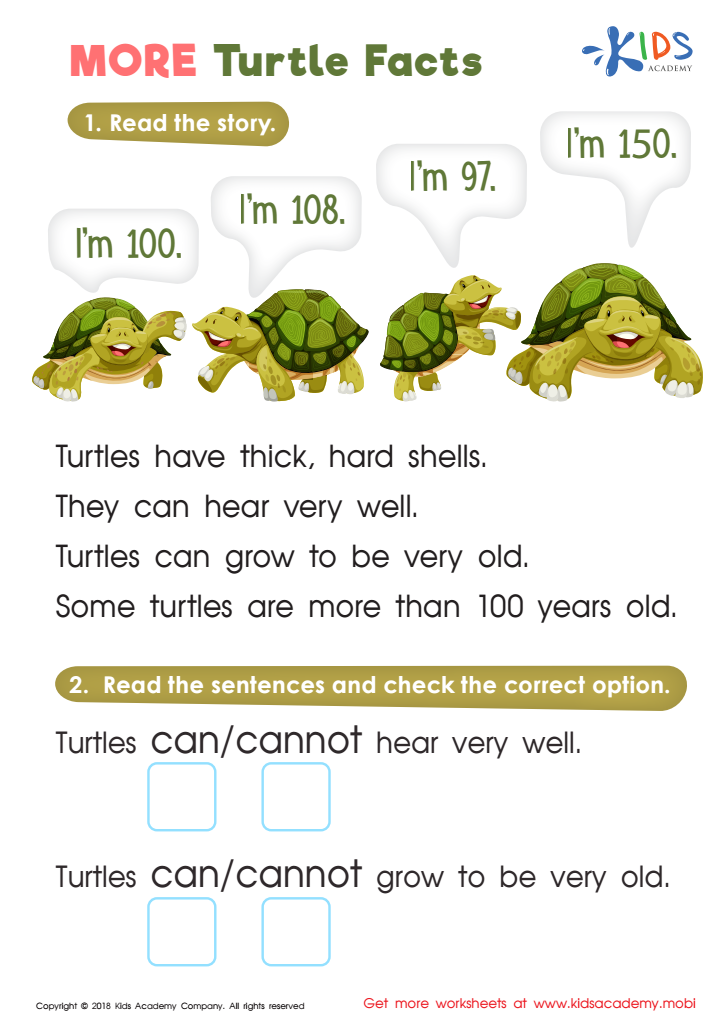

More Turtle Facts Worksheet
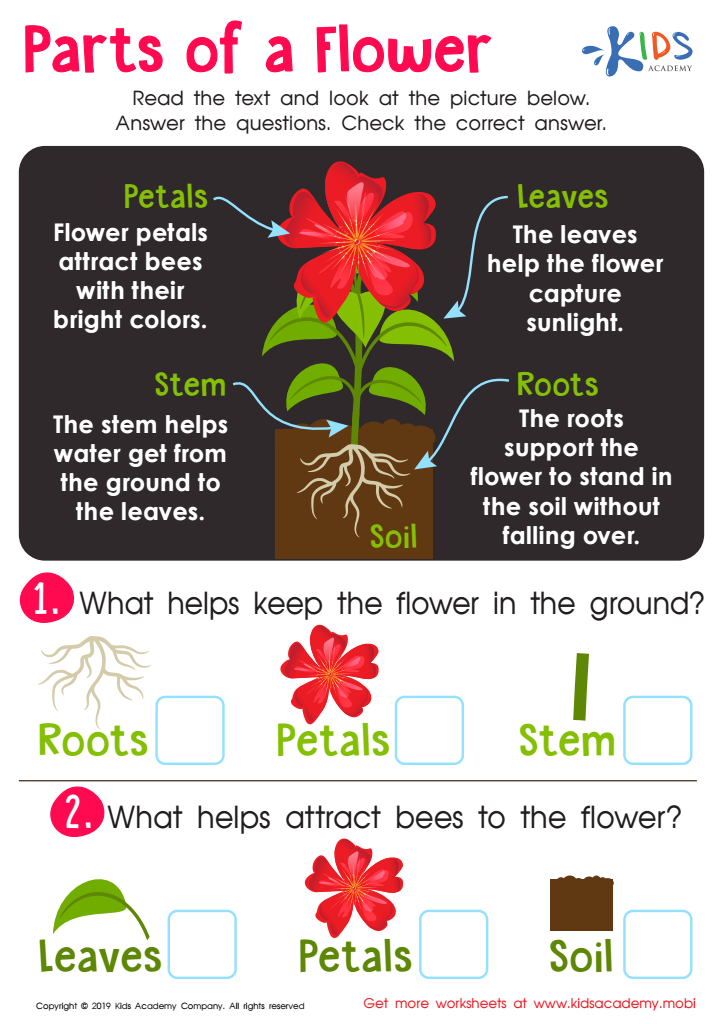

Parts of Flower Worksheet
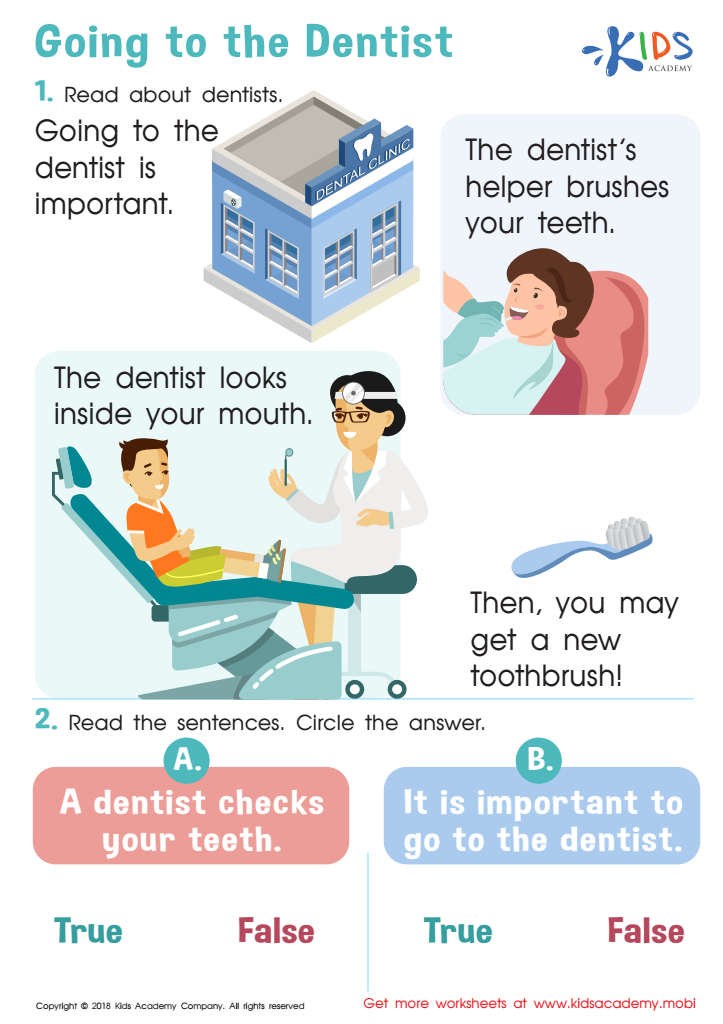

Going to the Dentist Part 2 Worksheet
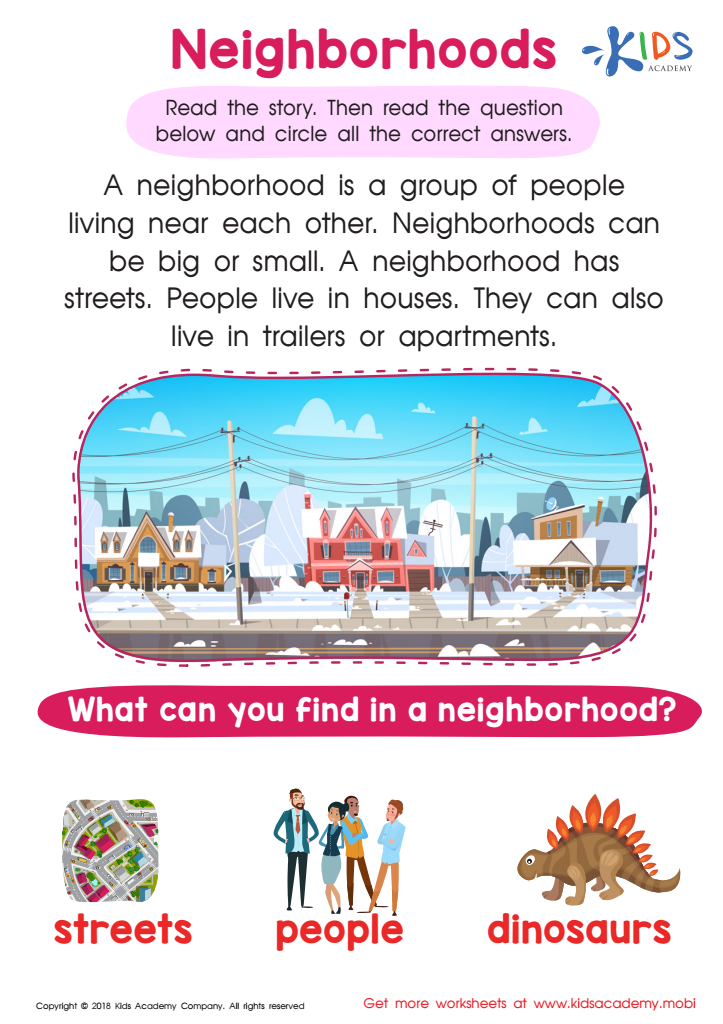

Neighborhoods Worksheet
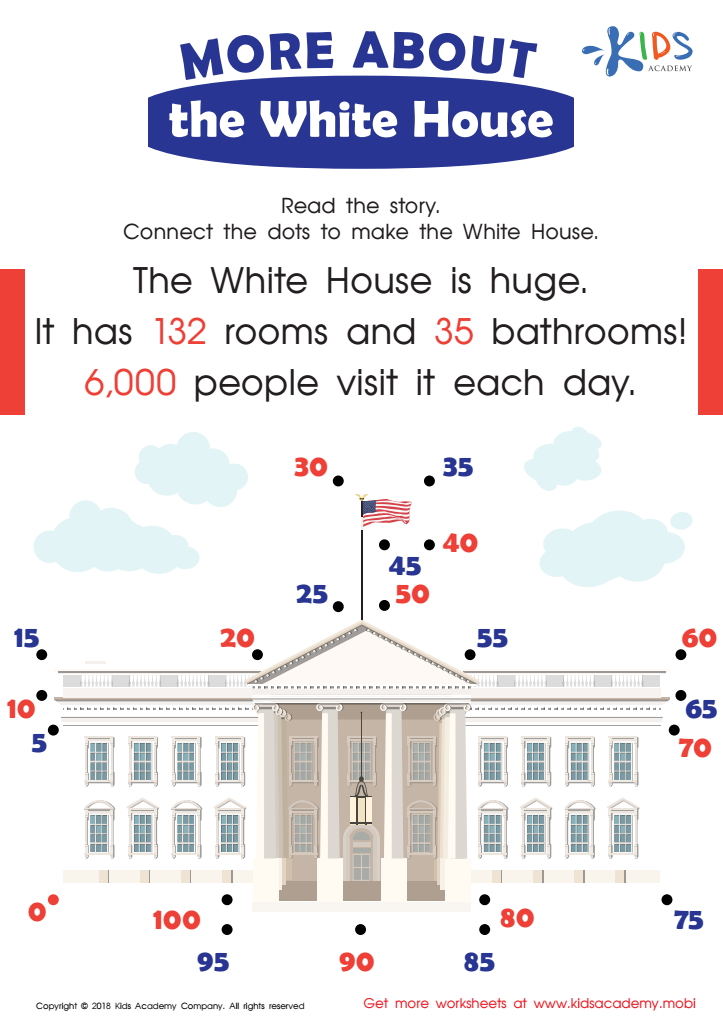

More About the White House Worksheet
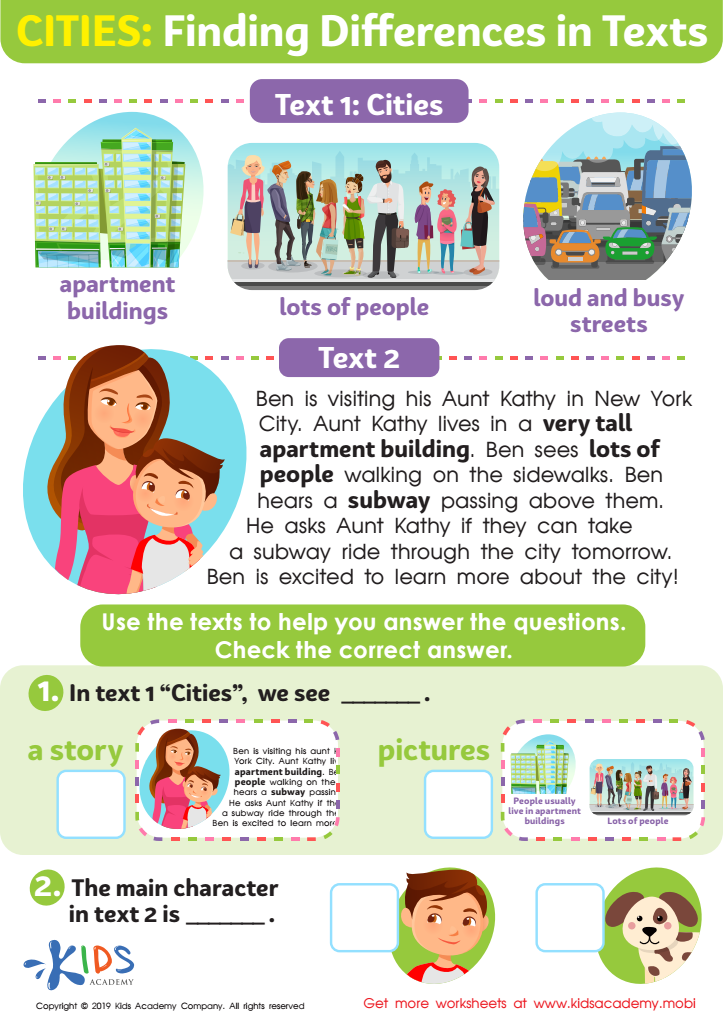

Cities: Finding Differences Worksheet
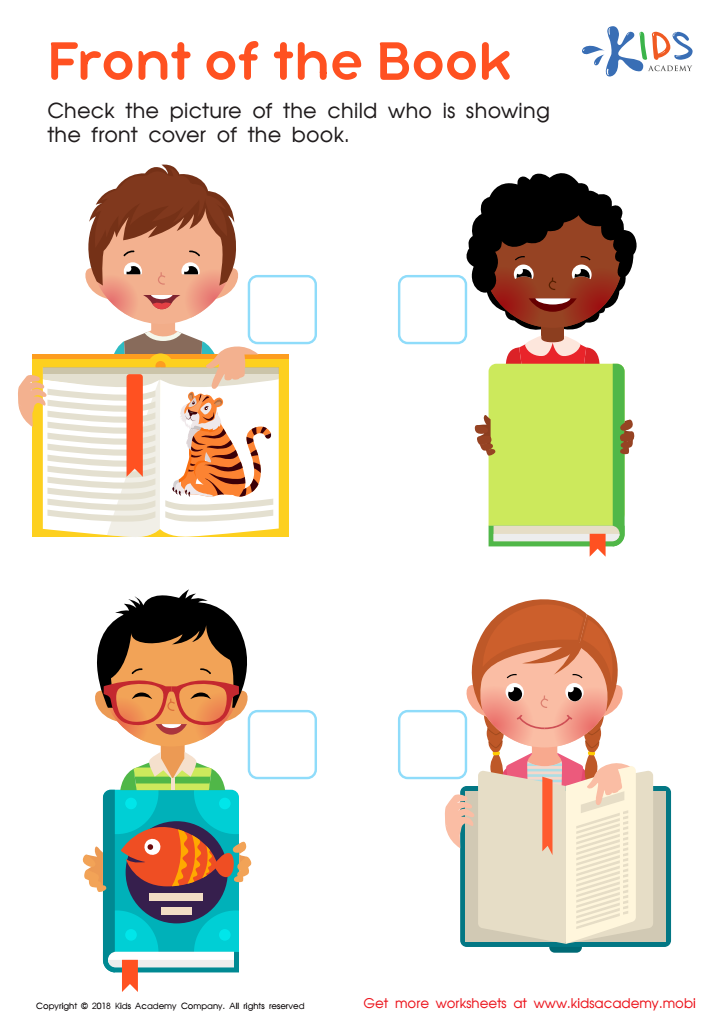

Front of the Book Worksheet
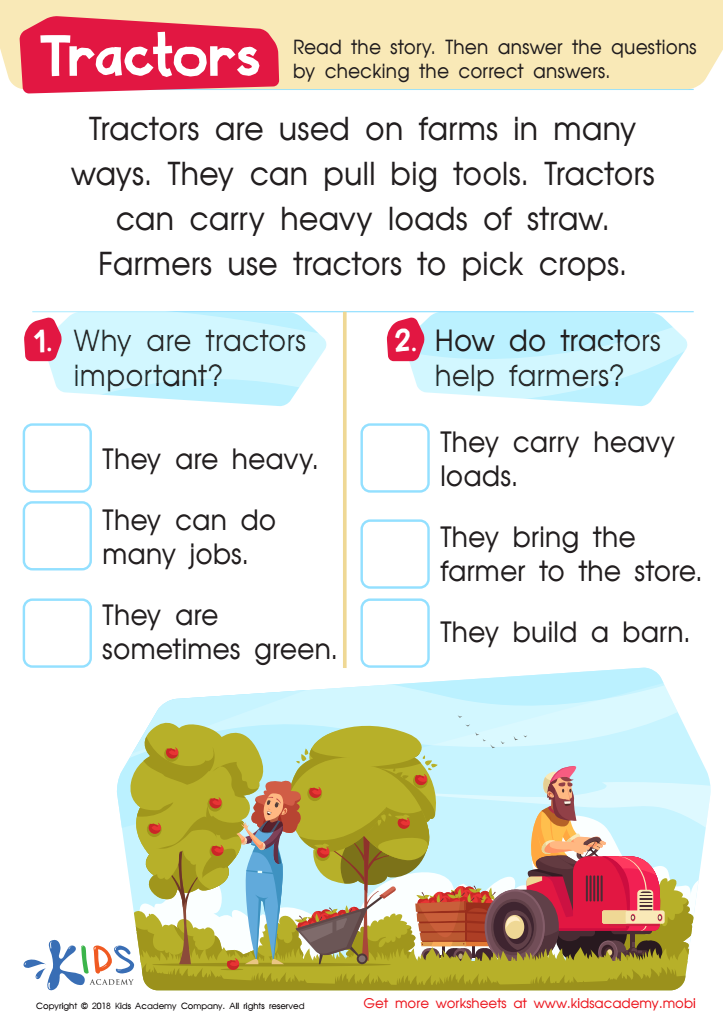

Tractors Worksheet
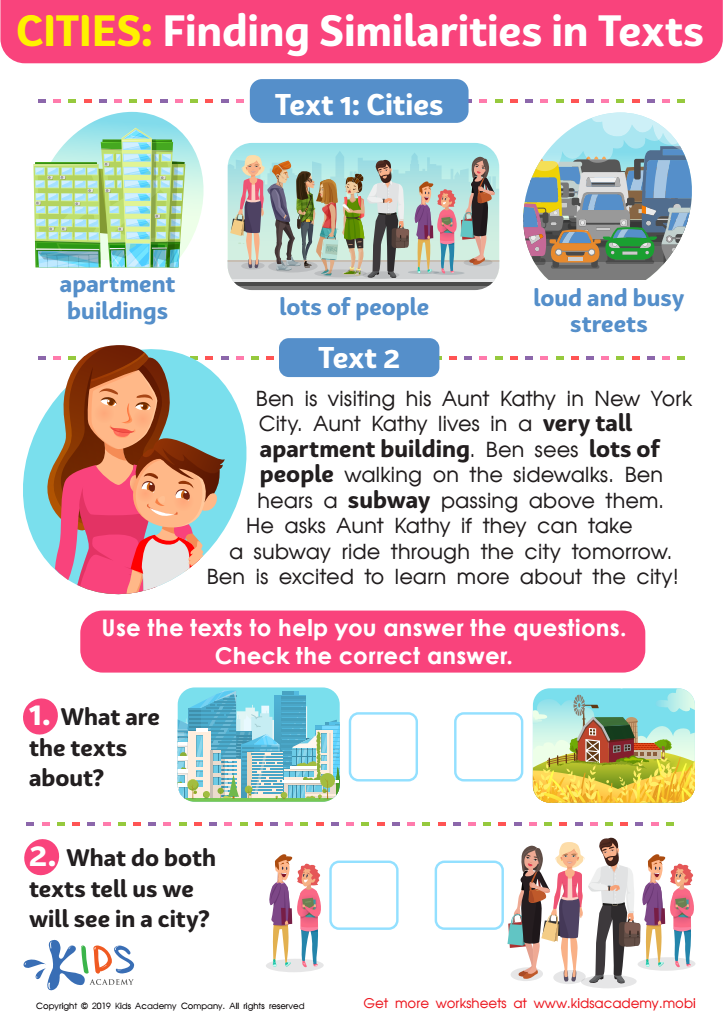

Cities: Finding Similarities Worksheet
Easy Reading Non-Fiction for ages 3-6 is crucial for early childhood development as it lays a strong foundation for literacy and knowledge acquisition. At this age, children's brains are incredibly receptive to new information and experiences. Non-fiction books offer rich opportunities to explore real-world concepts, fostering curiosity and a love for learning.
Parents and teachers should care about this genre because it introduces young readers to facts, features, and themes about nature, science, cultures, and everyday life, which helps expand their vocabulary and comprehension skills. Such books stimulate critical thinking, allowing children to ask questions and seek answers, which is a vital skill for lifelong learning.
Moreover, early exposure to non-fiction boosts informational literacy, teaching kids how to interpret data, recognize simple structures in texts, and understand various formats like charts or diagrams. It also promotes discussions between parents, teachers, and children, enriching literacy experiences and enhancing children's ability to communicate.
Ultimately, easy reading non-fiction not only cultivates a strong interest in reading but also empowers children with essential knowledge and skills for their academic journeys, encouraging exploration and a deep appreciation of the world around them.
 Assign to My Students
Assign to My Students















